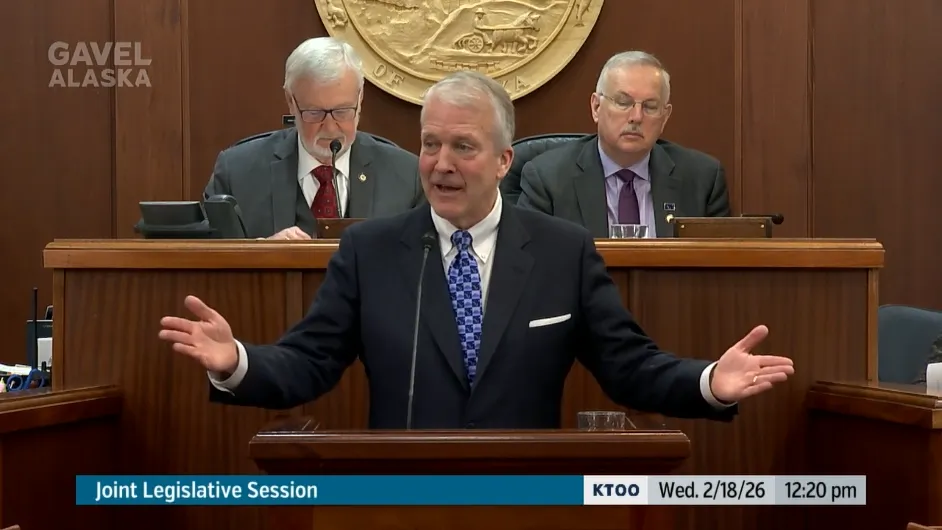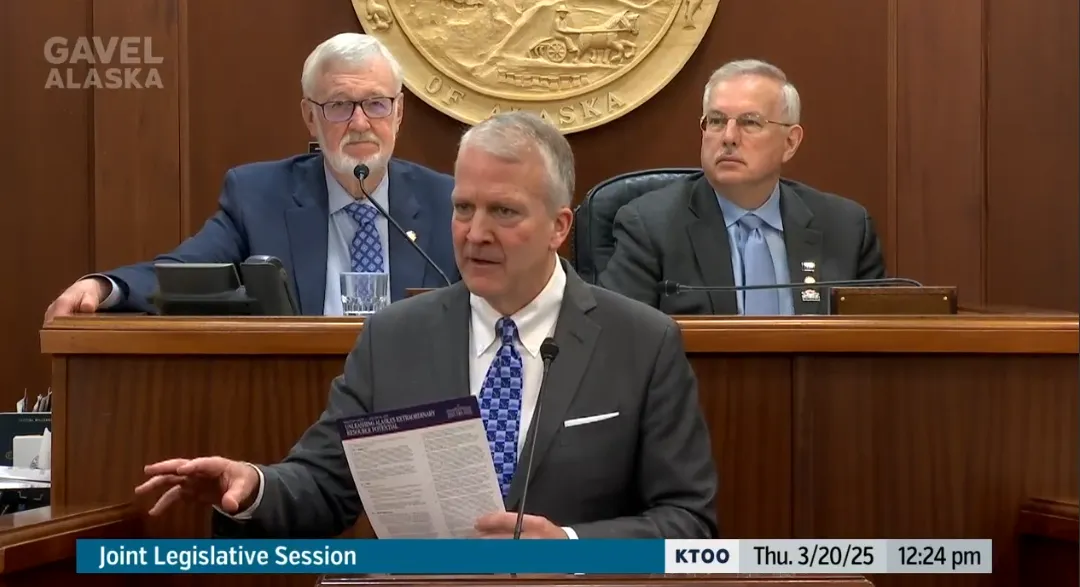19-1
Just when things looked doomed in the wake of Gov. Mike Dunleavy’s school veto standing, the Senate reached and passed a breakthrough deal that ostensibly addresses the two main complaints around funding schools: It has policy and a way to pay for it.
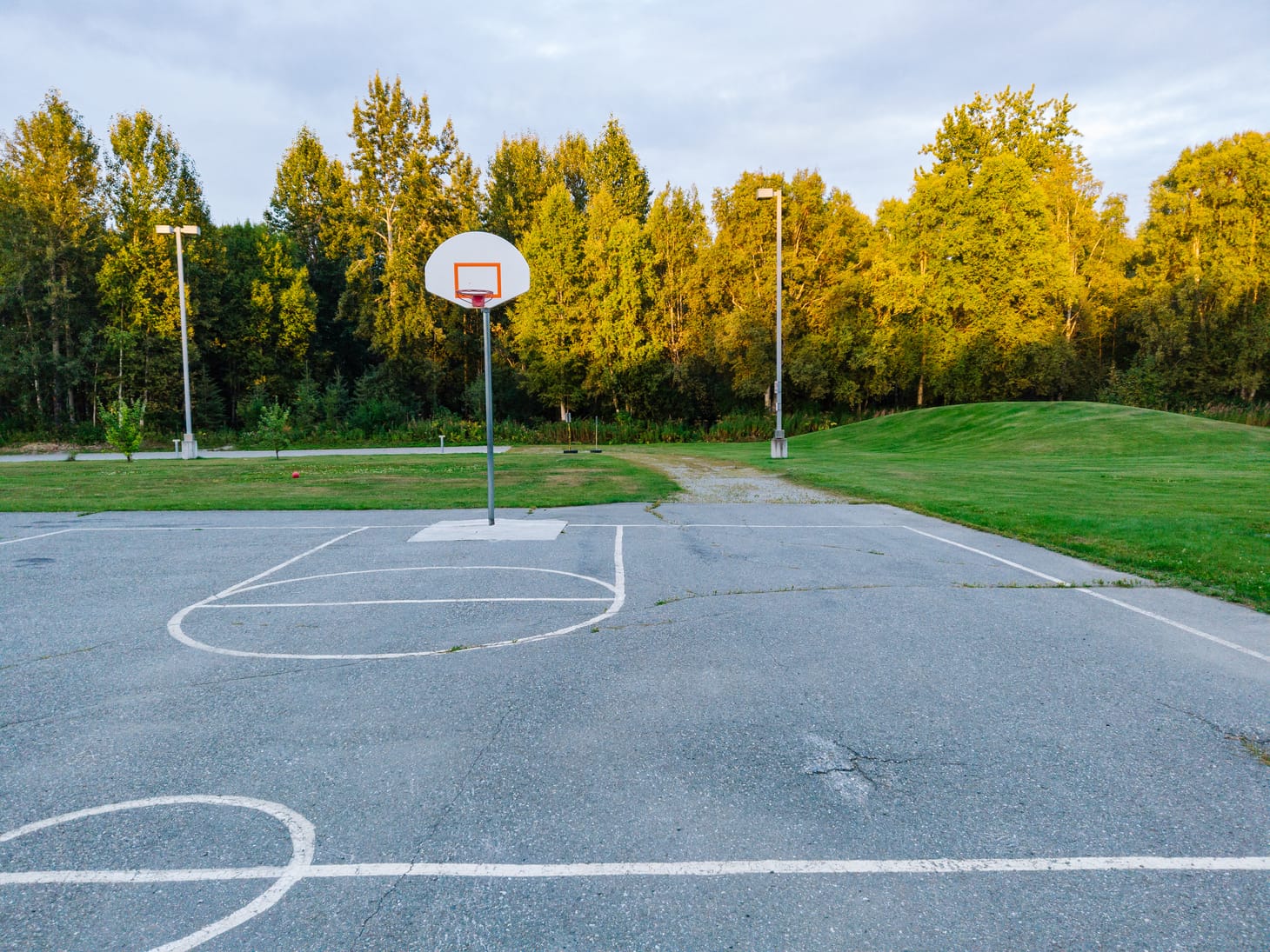
It's Tuesday, Alaska! It's Day 99.
In this edition: Just when things looked doomed in the wake of Gov. Mike Dunleavy’s school veto standing, the Senate reached and passed a breakthrough deal that ostensibly addresses the two main complaints around funding schools: It has policy and a way to pay for it. The new measure would deliver a $700 increase to the state’s base student allocation (technically, just $20 more than the current year’s funding levels) and a sampler platter of school policies that everyone could agree on. It also ties one of the biggest pieces of new funding to the state actually raising the revenue to pay for it. At the very least, it’ll make for an interesting showdown with the governor.
Current mood: 😲
19-1
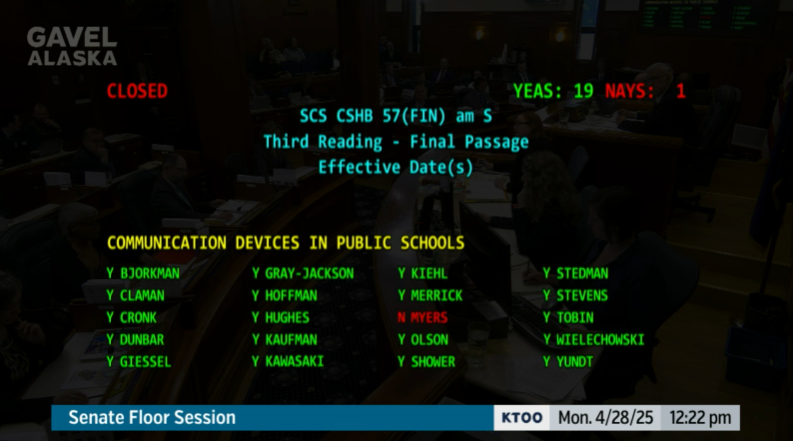
A lot can happen over a weekend.
A week removed from the Alaska Legislature’s 33-27 vote to uphold Gov. Mike Dunleavy’s second veto of a landmark education bill, the Senate has forged ahead with a new school funding bill that, at least for now, has broad bipartisan buy-in after it passed 19-1. The new version permanently increases the Base Student Allocation, the state’s per-student funding figure, by $700, boosts state funding of transportation costs by 10% and paves the way for additional incentive funding for schools that can get K-6 students reading at or above grade level. The measures are all bolted onto House Bill 57, which started out as Anchorage Rep. Zack Fields’ bill to limit cellphone use in public schools. While that bill emerged from the House defanged – switched from an outright ban to essentially a suggestion – the Senate firmed it up, making it so cellphones are banned by default, but districts can opt out.
The compromise is largely the work of a trio of Majority legislators and Wasilla Republican freshman Sen. Robert Yundt over the last week, and attempts to thread the needle between the competing concerns that doomed the education funding bill last week: Additional education policies and a way to pay for them.
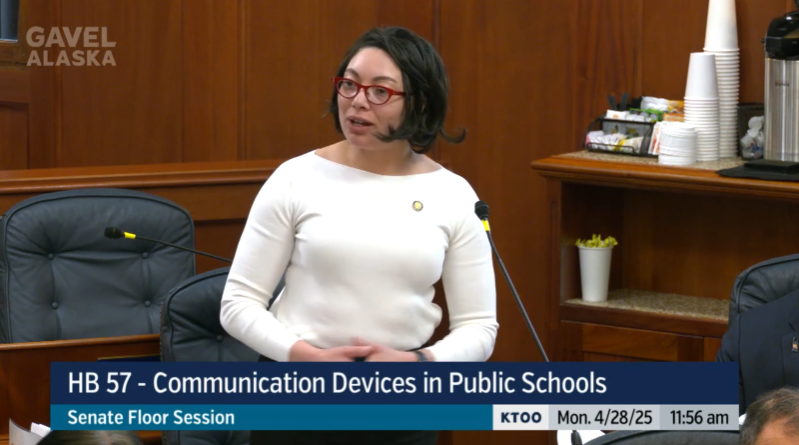
"While the bill before you isn't the final answer to adequately funding our schools, it will get the much-needed financial resources our schools desparately need to retain high-quality educators, reduce class sizes, keep beloved extra-cirricular activities and support our struggling students, HB 57 is a good bill headed in the right direction," she said. said Senate Education Committee chair Sen. Löki Tobin, D-Anchorage, and one of the key majority members behind the compromise.
The biggest change is the inclusion of additional incentive grants for each student in kindergarten through sixth grade who is reading at or above grade level. With Republican legislators demanding policy and accountability for districts in return for funding, the measure was critical to winning support for the bill.
“It rewards kids and schools for making improvements in being at or above grade level. This is what we want. It incentivizes good behavior, it incentivizes growth," Yundt said. "This is quite possibly the best thing today in regard to policy."
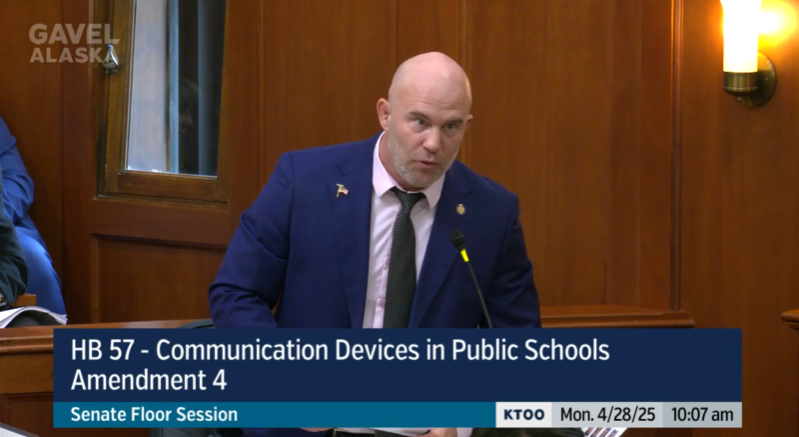
However, the $450 per-student grant only comes into effect if there’s the money to pay for it. The bill contains contingency language requiring that another bill, Senate Bill 113, become law. That bill would extend the state’s corporate income tax to online businesses and is expected to raise about $65 million annually. It has passed the Senate and is currently in the House. If there’s any surplus from that tax after the reading grants are paid out, the funding would flow to grants to help school districts operate career and technical education programs.
Sidenote: While it didn't make it into the bill, shout out to Sen. Yundt for also proposing universal free breakfast and lunch for kids, saying, "We cannot teach any hungry children. Breakfast and lunch should be for every kid." (He introduced and withdrew the measure, a move some use to draw attention to key issues while avoiding the risk of bogging down the rest of the bill.)
Several conservative Republicans who’ve groused about the education bills not containing policy changes or about the cost of the bill were won over by the amendment, even though they had misgivings about it being tied to a tax.
“It’s one of the ones that will move the needle,” said Sen. Shelley Hughes, R-Palmer. “It’s something that will help the students, and that’s something I’m all about.”
Other changes reached by Sen. Yundt and Majority Sens. Tobin, Jesse Bjorkman and Bill Wielechowski include directing an education funding task force to examine the open enrollment policy that the governor has requested and another that sets a guideline for maximum class sizes – 23 for K-6 students and 30 for everyone else – requiring districts to report back about any challenges meeting those guidelines.
Still, minority Republicans ran a slate of their own amendments on Monday attempting to push pet issues, such as a change that would allow students who opt out of the school day to also participate in extracurricular activities. Another would have required school districts to spend all the money they receive for intensive-needs students on them, but legislators pointed out that most districts are already spending more on intensive-needs students than they receive, and the measure would have resulted in a cut for most.
“I’m always looking for problems to solve, and I’m not aware of one here,” said Sen. Jesse Kiehl, D-Juneau. “The problem that needs solving is we’re not putting enough resources into the whole enterprise.”
Still, despite the hurt feelings about their changes not getting any traction, most minority Republicans voted in favor of the measure, and it passed on a 19-1 vote. Only North Pole Republican Sen. Robert Myers, who was particularly opposed to tying the measure to a new tax, voted against it.
Why it matters and what’s next
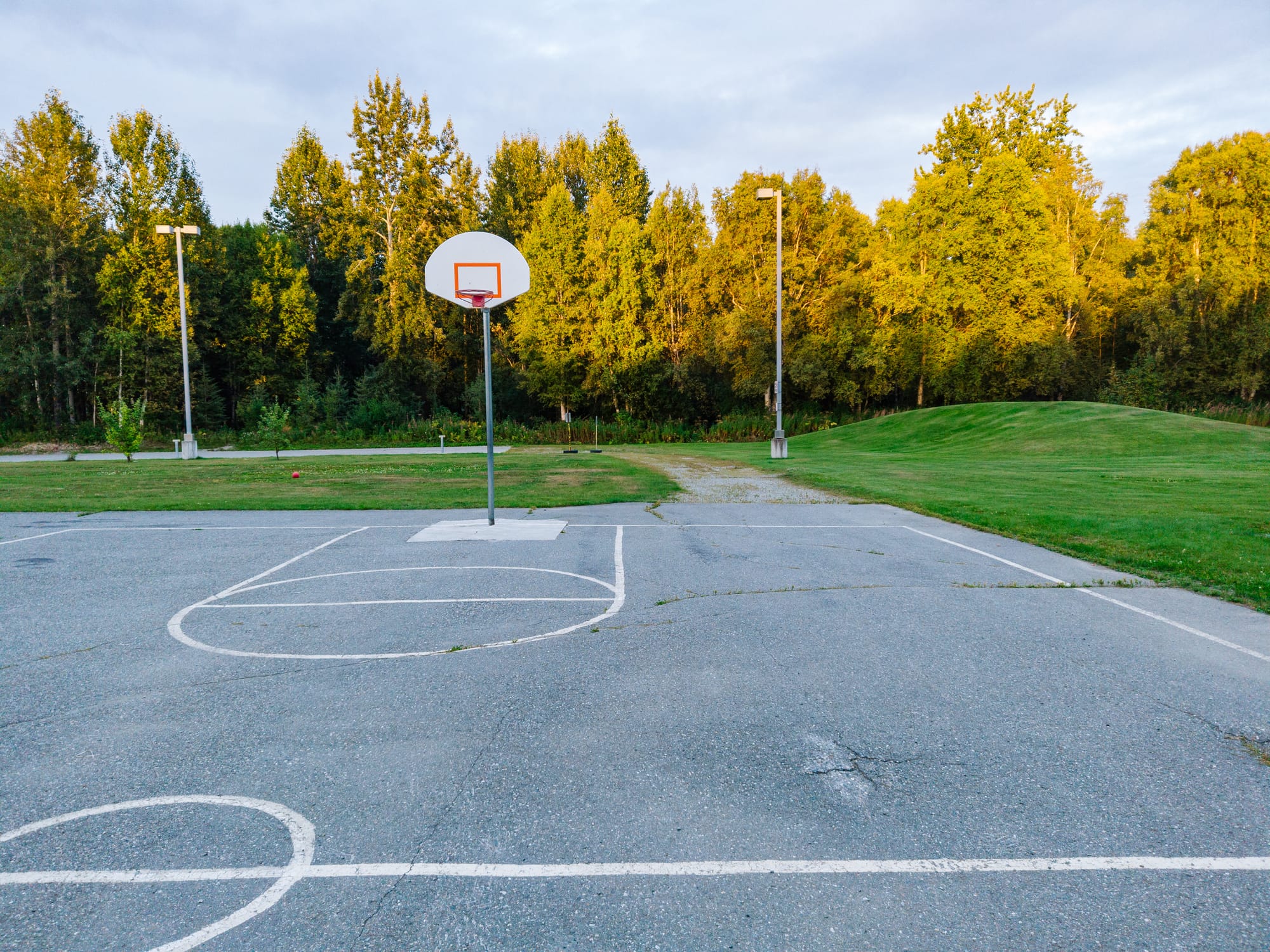
Despite the fact that the BSA increase pans out to a $20 increase over the current year’s funding levels (which included one-time money equal to a $680 BSA boost), it’s still a significant breakthrough for education funding in a session where expectations have been greatly cooled by a collapse in oil prices and investment markets. If HB 57 becomes law, it would enshrine the current funding level in state law, setting an expectation for funding to continue at at least that level into the future.
The measure returned to the House on Monday afternoon for a concurrence, but was kicked back to the Senate to fix a drafting error. Senate leadership said they plan to resolve the issue on Wednesday, setting it up to go to the governor with enough time left in the session to resolve a potential veto before the deadline for the 121-day session on May 21.
The big unknown is, of course, Gov. Mike Dunleavy. He has remained stubbornly insistent on essentially getting his way on everything – including an expansion of public charters and a boost to homeschool students on top of the $700 increase to the BSA – and has shown little interest or effort in negotiating with the Legislature. Still, this measure is probably as close as he’s going to get when Dunleavy-aligned Republicans are relegated to the minority in both chambers.
As far as a veto goes, the 19-1 vote in the Senate is an improvement over the $1,000 BSA boost that passed earlier this month. But, as we saw with last year’s veto, it’s not a guarantee that the votes will be there for an override – something that Senate Minority Leader Sen. Mike Shower hinted at during the floor debate on Monday.
If the bill doesn’t become law, the likely alternative would be another one-time boost through the budget.
Follow the thread: The Senate amends and passes education funding bill
The Alaska Memo Newsletter
Join the newsletter to receive the latest updates in your inbox.



